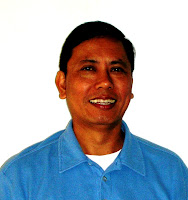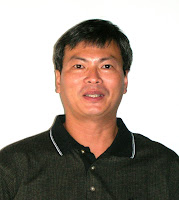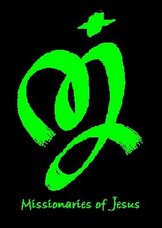The first five years …
Truth to tell, we have to ask whether, after five years, and as a community, we still have a story to tell. Is there something in our story that inspires and delights? Will those who come to know us be the wiser for the encounter? Will they be glad MJ ever happened?
Two years after our foundation, the State of the Institute Report of 2004 highlighted the following elements: the emerging MJ spirituality, community life as constitutive of our missionary calling, the need to heal the lingering hurts occasioned by our separation from CICM, God’s providence made manifest in the support and concern of friends and benefactors, and the identification of items to constitute a collective plan of action—missionary projects, professionalization, iconic communities of friends and disciples, and the prospects of more cross-cultural MJ missions.
The year 2005 saw us attempting a congregational evaluation through a survey. The results were rendered inconclusive because of the rather limited responses. By early 2006, we began prioritizing our commitments. The process of evaluating the consistency of our involvements, especially those that were taken up because they were the only ones available to us at the beginning, was undertaken in earnest. Consequently, the parish of Sablan was turned over, under very trying circumstances, to the diocesan clergy of Baguio on Easter Monday, the 17th of April 2006. In turn, we accepted the invitation of the Bishop of Digos, Msgr Guillermo Afable, to serve the members of the Tagakaolo tribe in Malita. Prioritization continued through 2007, resulting in the turnover of San Rafael Parish in Montalban on Easter Monday, the 9th of April.
A very significant area of development was Vocation Animation and Initial Formation. When we started out in 2002, we had two students doing their theological studies, Ferdinand Banggiacan and Aris Villanueva; and one in philosophy, Kirby Bagaslao. There was a slight increase in 2003 and 2004, when two more joined the postulancy in Baguio, Marlon Llovido and Jolly Torrella. After some time, we were down to two, Bagaslao and Villanueva. In school year 2005-2006, thanks to the efforts of our vocation animators and God’s providence, we went up to eight, thanks to six additional formands—Joel Aguilar, Noel Apuan, Eddieson Bautista, Quincy Gonzales, Loyd Maquilan, and Diosdado Santiago. When Aguilar and Gonzales left before the end of the school year, the total went down to six. When school year 2006-2007 started, however, we had thirteen: one in missionary training (Villanueva); three novices (Apuan, Bagaslao, and Santiago); two postulants (John Paul Delfin and Efren Pepito); and seven aspirants (Dennis Batucan, Eddieson Bautista, Vincent Lawana, Keyven Managat, Loyd Maquilan, Michael Jude Naparan, and Henry Quiñones). With the sacerdotal ordination of Villanueva and the exit of Apuan, Delfin, Maquilan, and Quiñones, we were down to eight formands—two novices, one postulant, and five aspirants—during the early part of this year. This school year, 2007-2008, gives us four new faces: Roldan Intrina, Gabriel Lindo, Gener Pito, and Joshua Rabago. We are up to an auspicious dozen.
The present distribution of MJ members
Overseas, in Papua New Guinea, there are five confreres—Toy Cordero, Greg Domilies, Apol Dulawan, Chris Lape, and Albert Sayson; in the United States of America, five as well—Manny Gacad, Mike Montoya, Melchor Villero, Mer Viuya (preparing to depart), and Ike Ymson.
In the Philippines, there are three confreres in Davao City—Bernard Maes, Ely Ubag, and Stan Young; three in Malita, Davao del Sur—Ver Pozon, Naz Sawey, and Elmo Tactacan; three in Marawi, Lanao del Sur— Roger del Rosario, Noel Octaviano, and Peng Reyes; two in Lubang Island, Occidental Mindoro—Freddie Pinuela and Gino Santos; and two in Modesta, San Mateo, Rizal—Gerry Charcos and Wren Reyes. Two are engaged in the teaching apostolate—Luk Mees and Monching Coronel; and one in education administration—Percy Bacani (based in Baguio City). Three are in formation work—Eugene Cañete (Novitiate Socius and concurrently General Secretary), Primo Fagel (Vocation Director, based in Baguio City), and Dict Lagarde (Rector of the Pre-Novitiate); while two are in fulltime administration—Joel Canuel (General Treasurer) and Freddie Dulay (General Coordinator). Three are assigned for a mission in Guatemala—Joe Guerrero, Rey Tejico, and Aris Villanueva. Joey Evangelista is pursuing doctoral studies at the Loyola School of Theology. Teo Lopez is on vacation while awaiting a new assignment. Two are on leave of absence—Marlo Delos Trinos and Jes Doctolero; and one has decided to end his journey with MJ—Beni Rimando.
Jesus gave us his face
Our struggle to become what we are—the missionaries of Jesus—has been characterized by the use of symbols and images. Though still limited and consisting mostly of reflections and reports, MJ literature bespeaks of a certain fondness for the imagery of dreams and journeys. Immediately we found missionary significance in the fact that we began as a community of religious missionaries in Antipolo City, where the historic wooden image of our Lady of Peace and Good Voyage is enshrined. As missionaries, we value mobility and have readily placed our itinerancy under the safekeeping of the Virgin of Antipolo.
There is definitely a felt intensity in our desire to pattern our lives on that of Jesus’. How often have we asked ourselves, in varied and different situations, when confronted with challenges or facing one or another crisis, the question: “What would Jesus have done were he in this situation?” We found wisdom and grace in the image of Jesus. His face was always before us. Our very first major fund-raising project was named Rostros de Jesus (Faces of Jesus). MJ friend and artist Rey Paz Contreras sculpted from discarded hardwood and traviesas (wooden rail tracks) forty-one images of Jesus in honor of the founding members. Since then, he has reproduced scores of Christ images that were presented to our relatives and friends, benefactors all who came to our help at the hour of our greatest need.
Figuratively and literally, we searched for our identity in the face of Jesus. Or, better still, in the many faces of Jesus. We wanted to be more like him in every way. We sought refuge in him as friend and brother, as teacher and master, as the beloved who loved us first. Jesus gave us a human face. He gave us his face. And now—let all be warned—we risk becoming his faces to the world. That’s tough but I guess that’s what we really want to be for the people we meet and would like to serve in his name. And all because we have seen his face and heard his voice.
































